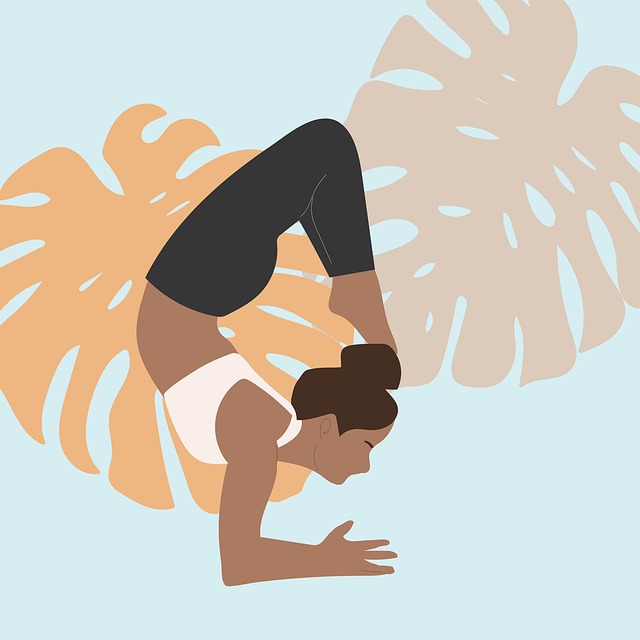Meditation retreats are vital for building genuine connections and mutual support in today's fast-paced world. These shared experiences create a sense of belonging and purpose, enriching lives and fostering supportive networks through vulnerability, emotional support, and empathy. Effective retreats blend structured meditation practices with interactive sessions, group discussions, and communal activities to promote interconnectedness. Creating safe, inclusive environments that address social anxiety and cultural differences is key. Success is measured by the quality of connections formed and lasting bonds created, assessed through surveys, follow-ups, and long-term mental health evaluations.
In today’s fast-paced world, group activities play a pivotal role in fostering connections and support among individuals. This article explores the power of shared experiences through focused discussions on mediation retreats. We delve into strategies for designing retreats that enhance interpersonal bonds, techniques for overcoming barriers to create safe and inclusive environments, and methods for measuring the impact of these collective endeavors. Discover how meditation retreats can transform lives by strengthening communities.
- The Power of Shared Experiences: Why Group Activities Matter
- Designing Meditation Retreats for Optimal Connection
- Overcoming Barriers: Creating a Safe and Inclusive Environment
- Measuring Success: Evaluating the Impact of Group Activities
The Power of Shared Experiences: Why Group Activities Matter

In today’s fast-paced and often isolating world, group activities play a pivotal role in fostering genuine connections and mutual support among individuals. Unlike solitary pursuits, shared experiences create a unique bond that transcends mere acquaintanceship. Whether it’s participating in meditation retreats or engaging in community service projects, these collaborative endeavors offer a sense of belonging and purpose.
When people come together to engage in activities that promote well-being, such as mindfulness practices or creative workshops, they not only enrich their lives but also build a supportive network. The shared challenges and triumphs during group activities create an environment where individuals can be vulnerable, offering both emotional support and valuable perspectives. This sense of unity fosters a deeper understanding, empathy, and respect among participants, ultimately strengthening the social fabric of communities.
Designing Meditation Retreats for Optimal Connection

Designing Meditation Retreats for Optimal Connection involves more than just creating a serene space; it’s about cultivating an environment that encourages deeper relationships and mutual support among participants. These retreats should blend structured meditation practices with open, safe spaces for sharing and reflection. Facilitators can achieve this by incorporating interactive sessions, group discussions, and communal activities that foster vulnerability and empathy.
A key aspect of designing such retreats is focusing on mindfulness exercises tailored for group dynamics. This could include guided visualizations that encourage participants to connect with each other energetically or body-scan meditations that prompt them to notice and appreciate the unique qualities present in every individual. By weaving these practices into the fabric of the retreat, participants can experience a profound sense of interconnectedness, making meditation retreats not just about personal growth but also about building stronger, more supportive communities.
Overcoming Barriers: Creating a Safe and Inclusive Environment

Creating a safe and inclusive environment is paramount for group activities that foster connection and support, especially in settings like meditation retreats. Many individuals enter these spaces with varying levels of comfort, openness, or even fear due to past experiences. Barriers such as social anxiety, cultural differences, or personal insecurities can hinder meaningful participation. Overcoming these obstacles starts with establishing clear guidelines for respect, active listening, and non-judgmental attitudes. Facilitators play a crucial role in modeling desired behaviors, ensuring everyone feels seen and heard.
Incorporating diverse activities that cater to different comfort levels helps break the ice and foster an atmosphere of acceptance. Meditation retreats can offer options like guided visualizations, partner work, or small group discussions, allowing participants to engage at their own pace. By creating opportunities for shared experiences and fostering open communication, these environments enable individuals to build trust, challenge stereotypes, and form deeper connections.
Measuring Success: Evaluating the Impact of Group Activities

Measuring the success of group activities, especially those centered around mindfulness and well-being like meditation retreats, is an essential aspect of understanding their impact on fostering connection and support among participants. It’s not just about the number of attendees but rather the quality of experiences that create lasting bonds. Successful group activities should leave individuals feeling seen, heard, and valued, leading to enhanced social connections and a sense of belonging.
Evaluating the impact can be done through various methods. Pre- and post-retreat surveys can gauge changes in participants’ feelings of isolation or loneliness, while follow-up sessions can assess whether connections formed during the retreat have translated into ongoing support networks. The quality of interactions—from open dialogue to mutual understanding and empathy—is a key indicator of successful group dynamics. Additionally, measuring the long-term effects on mental health and overall well-being through subsequent studies or personal reflections reveals the lasting impact of these collective experiences, such as those offered by meditation retreats.
Group activities, particularly meditation retreats, offer a powerful tool for fostering connection and support among individuals. By designing inclusive environments that encourage shared experiences, we can enhance well-being and create lasting bonds. Overcoming barriers to accessibility ensures that these gatherings become safe havens where everyone feels valued. Measuring the impact of such initiatives reveals their potential to transform lives, making them essential components of any community-building strategy, especially within the context of meditation retreats.
